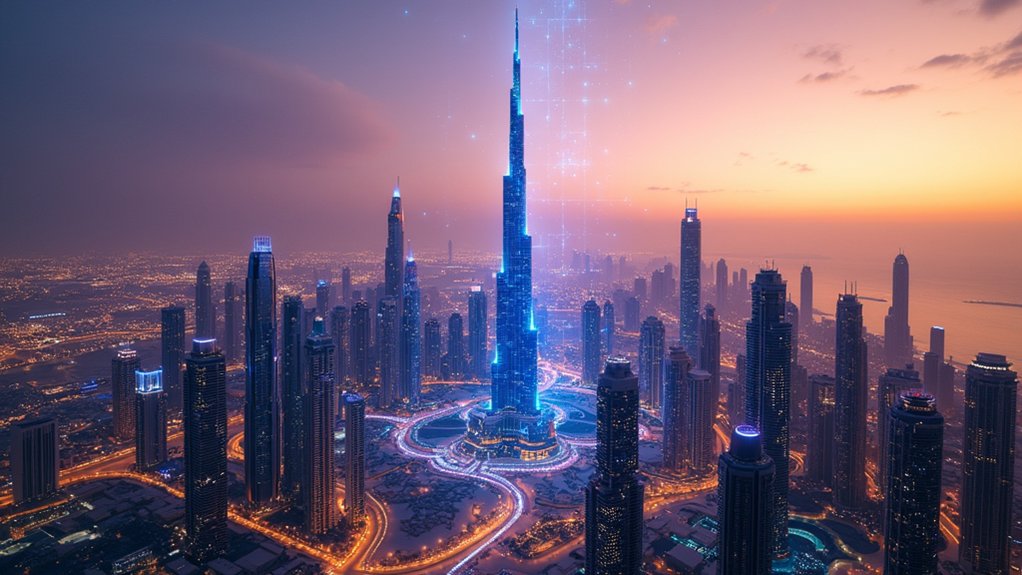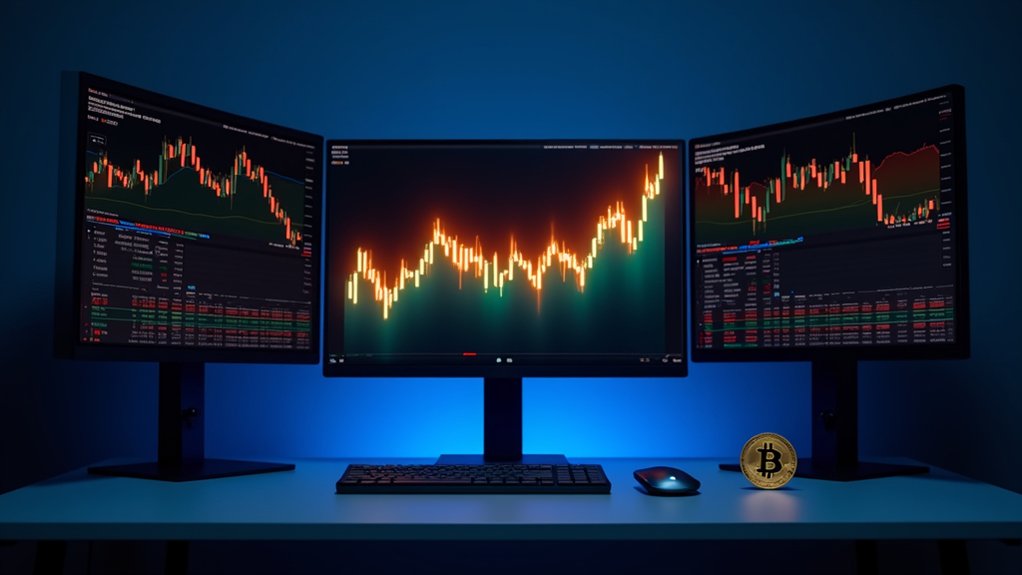Dubai is charging headfirst into the future of real estate. The Dubai Land Department just dropped a bombshell announcement: they’re tokenizing $16 billion worth of property on the XRP Ledger. Yeah, you read that right. The government’s actually doing this.
Dubai’s taking real estate digital, tokenizing $16B in property on XRP Ledger. The future of property ownership just got real.
This isn’t some small-time crypto experiment. We’re talking about tokenizing roughly 7% of Dubai’s entire property market over the next decade. The project brings together some serious players – Ctrl Alt for tokenization tech, Prypco for the platform, and backing from both the Dubai Future Foundation and Virtual Assets Regulatory Authority. It’s kind of a big deal. The platform’s energy-efficient design leverages XRPL’s consensus protocol, making it an environmentally conscious choice for Dubai.
The whole thing runs on the XRP Ledger, picked for its speed (3-5 second transaction finality) and dirt-cheap fees. Every property token is backed by actual title deeds, all properly registered and legal. No funny business here – this is as official as it gets in the Middle East. This marks the first government authority in the Middle East to use a public blockchain for title deed tokenization. Like other smart contracts in DeFi, these property tokens execute transactions automatically without intermediaries.
Here’s where it gets interesting: anyone can jump in with just 2,000 dirhams (about $545). That’s less than a fancy smartphone. Suddenly, owning a piece of Dubai real estate isn’t just for the ultra-wealthy. Regular folks can own fragments of multiple properties, spread their risk around, and actually get into the market.
The security setup is no joke. Ctrl Alt’s handling the tokenization process with multiple compliance checks, and everything’s backed by VARA. The blockchain makes every transaction permanent and visible – try faking that. Plus, these aren’t just digital tokens; they’re legally recognized ownership shares with actual rights.
This could completely reshape Dubai’s property market. More buyers, faster deals, global access – it’s all on the table. If it works, other cities might copy the model. Dubai’s basically telling the world: “This is how real estate works now. Keep up.”
Time will tell if this bold bet pays off. But one thing’s clear – Dubai isn’t waiting around to find out what the future of real estate looks like. They’re building it themselves.





